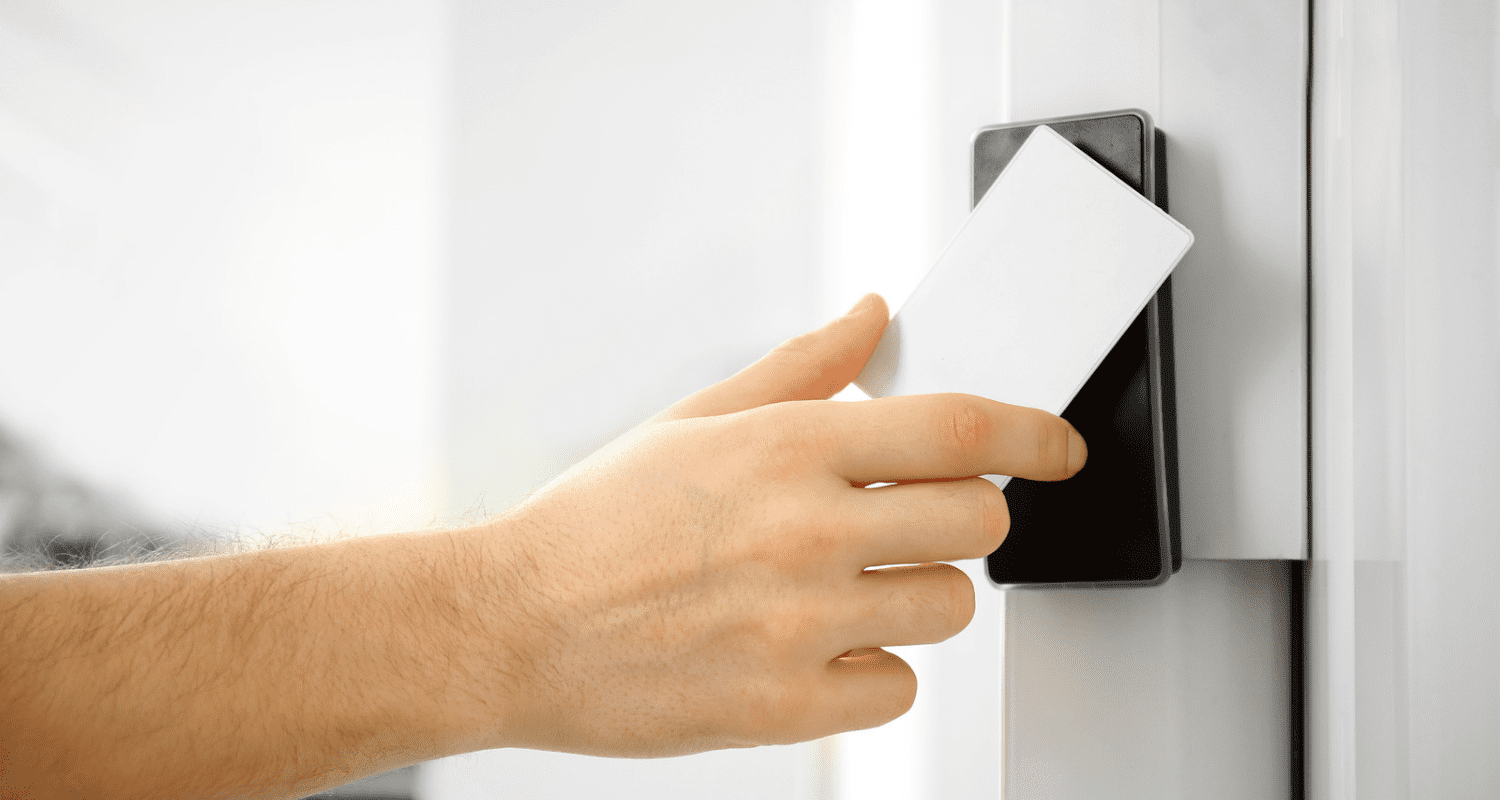Is It Easy to Hack a Hotel Key Card? A Comprehensive Guide
In the digital age, where convenience and security often clash, the question of whether it’s easy to hack a hotel key card has become a pressing concern for travelers and the hospitality industry alike.
If you’re short on time, here’s a quick answer to your question: While hacking hotel key cards is theoretically possible, it requires specialized knowledge, tools, and a significant amount of effort, making it relatively difficult for the average person to accomplish.
In this comprehensive article, we’ll delve into the intricacies of hotel key card systems, explore the potential vulnerabilities, and provide insights into the measures taken by hotels to safeguard their guests’ privacy and security.
Additionally, we’ll offer practical tips to help you protect yourself during your stays.
Understanding Hotel Key Card Systems
How Hotel Key Cards Work
Hotel key cards, also known as electronic key cards or keyless entry cards, have become the industry standard for securing guest rooms. These cards use a magnetic strip or a microchip to store encrypted data that grants access to specific rooms during a guest’s stay.
When you insert the key card into the door lock, it communicates with the lock’s internal system to verify the encoded information. If the data matches, the lock disengages, allowing you to enter the room. Pretty nifty, right? 😎
Unlike traditional metal keys, key cards offer enhanced security and convenience. They can be easily deactivated or reprogrammed, preventing unauthorized access after a guest checks out. Plus, hotels can track and monitor room entries, adding an extra layer of safety for their guests.
According to ScienceDirect, electronic key cards have become a critical component of hotel security systems worldwide.
The Evolution of Key Card Technology
The journey of hotel key cards has been an exciting one, constantly evolving to meet the demands of the modern hospitality industry. In the early days, magnetic stripe cards were the norm, but they were susceptible to data corruption and unauthorized duplication.
To combat these vulnerabilities, hotels began adopting more advanced technologies like RFID (Radio Frequency Identification) and smart cards with integrated circuits.
Today, many hotels have embraced the power of mobile key technology, allowing guests to use their smartphones as digital keys. This innovative approach eliminates the need for physical cards altogether, providing a seamless and contactless experience.
According to a report by Hotel News Resource, over 28% of hotels worldwide have implemented mobile key solutions, with the number expected to grow rapidly in the coming years.
Common Security Features
To ensure the utmost protection for guests and their belongings, hotel key card systems incorporate various security features. Here are some common ones to keep in mind:
- Encryption: Key card data is encrypted to prevent unauthorized duplication or tampering.
- Expiration dates: Key cards are programmed to expire after a specific date or time, rendering them useless after a guest’s stay.
- Access restrictions: Certain key cards can be limited to specific areas or floors, restricting access to unauthorized personnel.
- Audit trails: Many systems log and track room entries, providing a detailed record of who accessed each room and when.
While these security measures are robust, it’s important to remember that no system is entirely foolproof. Responsible guests and diligent hotel staff play a crucial role in maintaining a secure environment.
By working together and staying vigilant, we can ensure that hotel key card systems continue to provide a safe and convenient experience for all. After all, a great vacation starts with a sense of security and peace of mind.
Potential Vulnerabilities in Hotel Key Card Systems
Hotel key cards, also known as electronic locks or RFID (Radio Frequency Identification) keys, have revolutionized the hospitality industry by providing a convenient and secure way to access guest rooms.
However, like any technology, they are not immune to vulnerabilities that can be exploited by malicious actors. In this section, we’ll explore three main areas of potential vulnerabilities: physical, software/encryption, and human factors.
Physical Vulnerabilities
Physical vulnerabilities refer to the weaknesses in the physical components of the key card system. These can include:
- Weak locks or doors that can be easily forced open or picked
- Flaws in the key card reader design that allow unauthorized access
- Interception and cloning of key cards by eavesdropping on the radio frequency signals
According to a study by Forbes, up to 4 million hotel rooms worldwide were vulnerable to key card hacking due to a flaw in the lock software. 😲 This highlights the importance of regular security audits and updates to mitigate physical vulnerabilities.
Software and Encryption Vulnerabilities
Software and encryption vulnerabilities are related to the digital components of the key card system. These can include:
- Weak or outdated encryption algorithms used to secure the communication between the key card and the lock
- Vulnerabilities in the lock firmware or software that can be exploited to bypass security measures
- Lack of secure key management practices, leading to potential key leakage or unauthorized key generation
In 2018, a group of researchers from F-Secure discovered a vulnerability in the Vision software used by many hotel chains, which could potentially allow hackers to create master keys and gain access to any room.
😱 This vulnerability was patched, but it serves as a reminder of the importance of secure software development and regular updates.
Human Factors and Social Engineering
While technical vulnerabilities are certainly concerning, human factors and social engineering techniques can also pose a significant risk to hotel key card systems. These can include:
- Theft or loss of key cards by guests or staff members
- Social engineering attacks, such as impersonating hotel staff or guests to gain unauthorized access
- Lack of proper staff training on security best practices and incident response
A study by Verizon found that human error and social engineering tactics were involved in a staggering 82% of data breaches in 2022. 🤯 This underscores the importance of ongoing security awareness training and robust policies to mitigate human-related vulnerabilities.
By understanding these potential vulnerabilities, hotels and security professionals can take proactive measures to enhance the security of their key card systems, ensuring the safety and privacy of their guests.
Regular risk assessments, software updates, staff training, and a commitment to continuous improvement are key to staying ahead of potential threats.
The Challenges of Hacking Hotel Key Cards
Hacking hotel key cards may seem like a tempting challenge for tech-savvy individuals, but it’s a complex endeavor that requires a significant level of technical expertise. While the idea of gaining unauthorized access might be alluring, it’s crucial to understand the legal, ethical, and practical implications of such actions.
Technical Expertise Required
Hotel key cards often use advanced encryption and security protocols to protect against unauthorized access. Cracking these systems requires a deep understanding of cryptography, programming, and hardware hacking techniques.
Even with the knowledge and tools, hacking a hotel key card system can be an arduous task that demands patience, persistence, and a willingness to continuously learn and adapt.
According to a study by the National Institute of Standards and Technology (NIST), the security measures implemented by major hotel chains have significantly improved over the years, making it increasingly difficult for amateur hackers to breach these systems.
The report highlights that successful hacking attempts often require sophisticated equipment and in-depth knowledge of the specific key card system used by the hotel.
Legal Implications and Consequences
Attempting to hack a hotel key card system is illegal in most jurisdictions and can result in severe legal consequences. Such actions are often considered a form of computer trespassing, unauthorized access, or even theft, depending on the circumstances.
The penalties can range from hefty fines to imprisonment, not to mention the potential for a criminal record that could have long-lasting implications.
According to the U.S. Department of Justice, even attempting to access a computer system without authorization can be considered a violation of the Computer Fraud and Abuse Act (CFAA). The consequences can be severe, with penalties increasing based on the extent of the damage caused or the value of the information obtained.
Ethical Considerations
Beyond the legal ramifications, hacking hotel key cards raises significant ethical concerns. It’s a breach of trust and privacy that can potentially compromise the safety and security of hotel guests. Even if the intention is not malicious, the act itself violates the reasonable expectation of privacy and security that individuals have when staying at a hotel.
As technology continues to advance, it’s crucial to prioritize ethical behavior and respect the boundaries set by laws and societal norms. Engaging in activities that undermine the security and privacy of others, regardless of the perceived challenge or thrill, is unethical and can have far-reaching consequences.
Instead of pursuing unauthorized access, individuals with an interest in cybersecurity and hacking should consider legal and ethical avenues, such as participating in bug bounty programs, attending cybersecurity conferences or workshops, or pursuing a career in ethical hacking or penetration testing.
These legitimate paths not only provide opportunities for learning and growth but also contribute to improving overall security while operating within the confines of the law.
Hotel Security Measures and Best Practices
As the hospitality industry continues to embrace technology, ensuring the safety and privacy of guests remains a top priority. Hotels have implemented various security measures and best practices to safeguard their key card systems and protect against potential hacking attempts.
Encryption and Access Control Protocols
One of the most critical security measures employed by hotels is the use of encryption and robust access control protocols. Key card systems often utilize advanced encryption algorithms, such as the Advanced Encryption Standard (AES) or Triple Data Encryption Standard (3DES), to secure the data stored on the cards.
These encryption methods make it extremely difficult for unauthorized individuals to decode and access the information.
Additionally, access control protocols are implemented to ensure that only authorized personnel can program or modify key cards. These protocols typically involve multi-factor authentication, biometric verification, and role-based access controls.
Hotels may also employ centralized key management systems that allow for remote monitoring and control of key card access. According to a study by the Security Industry Association, 78% of hotels have implemented advanced access control systems to enhance security.
Staff Training and Awareness
Effective staff training and awareness programs are crucial for maintaining a strong security posture. Hotels invest in educating their employees about the importance of data privacy, proper key card handling procedures, and recognizing potential security threats.
Regular training sessions cover topics such as identifying suspicious behavior, reporting incidents, and adhering to strict security protocols.
Furthermore, hotels often implement strict policies regarding key card management, limiting access to sensitive areas and ensuring that key cards are properly deactivated or disposed of when no longer needed.
According to a survey by the American Hotel & Lodging Association, 92% of hotels have implemented comprehensive staff training programs focused on data security and guest privacy.
Physical Security Measures
In addition to technological measures, hotels employ various physical security measures to enhance the overall security of their premises. These measures include:
- Surveillance systems: Hotels utilize CCTV cameras and monitoring systems to track activity in public areas, entrances, and sensitive locations.
- Access control systems: Biometric scanners, keycard readers, and other access control systems are implemented to restrict unauthorized entry into secure areas.
- Security personnel: Trained security staff are employed to patrol the premises, monitor activities, and respond to potential threats or incidents.
- Secure storage: Key card encoding devices, spare key cards, and other sensitive equipment are stored in secure, access-controlled locations.
By implementing a multi-layered approach that combines technological, procedural, and physical security measures, hotels can significantly reduce the risk of key card hacking and ensure a safe and secure environment for their guests.
However, it’s important to note that no system is entirely foolproof, and hotels must remain vigilant and continually adapt their security measures to stay ahead of emerging threats.
Tips for Travelers: Protecting Your Privacy and Security
Safeguarding Your Key Card
In the era of digital convenience, hotel key cards have become a ubiquitous part of our travel experiences. However, with the rise of cybercrime and data breaches, it’s crucial to take proactive measures to safeguard your privacy and security.
According to a report by HotelNewsResource, nearly 60% of travelers have expressed concerns about the security of their personal information when staying at hotels. 😟
One of the most effective ways to protect your key card is to treat it like cash. 💰 Keep it secure and out of sight when not in use. Avoid leaving it lying around in public areas or on surfaces where it could be easily accessed or duplicated.
Additionally, be cautious when handing your key card to hotel staff or strangers, as it could potentially expose your room number and other sensitive information.
It’s also a good practice to regularly wipe your key card with a soft cloth or microfiber cloth to remove any potential data residue or skimming devices. This simple step can go a long way in maintaining your privacy and preventing unauthorized access. 🔒
Reporting Suspicious Activities
Vigilance is key when it comes to protecting your privacy and security while traveling. If you notice any suspicious activities or individuals around your room or the hotel premises, don’t hesitate to report them to the hotel staff or authorities immediately.
🚨 Reputable hotels take guest safety seriously and have protocols in place to address such concerns promptly.
According to a survey by TravelConfidant, 78% of travelers feel more secure when staying at hotels that have visible security measures in place, such as CCTV cameras and security personnel. Don’t be afraid to ask the hotel about their security measures and report any potential breaches or concerns you may have.
👮♂️
Choosing Reputable Hotels
When it comes to protecting your privacy and security, choosing a reputable hotel can make a significant difference. Look for hotels that prioritize guest safety and have robust security protocols in place.
🏨 Research online reviews and ratings, and pay attention to any mentions of security concerns or breaches.
Additionally, consider hotels that offer advanced security features like biometric access control systems, encrypted key cards, and secure WiFi networks. These measures can help mitigate the risk of unauthorized access and data breaches. 🔐
According to a study by HospitalityNet, hotels that invest in robust security measures not only enhance guest satisfaction but also experience a 25% reduction in security-related incidents. 📊 By choosing a reputable hotel, you can enjoy peace of mind and focus on making the most of your travel experience.
Remember, your privacy and security should be a top priority when traveling. By following these tips and staying vigilant, you can minimize the risk of security breaches and enjoy a worry-free and memorable trip. 🌍✈️
Conclusion
While the prospect of hacking hotel key cards may seem alluring to some, it is a complex and legally precarious endeavor that requires specialized knowledge and resources. The hospitality industry has made significant strides in enhancing the security of their key card systems, implementing robust encryption, access control protocols, and physical security measures.
As travelers, it is crucial to remain vigilant, safeguard our key cards, and report any suspicious activities to hotel staff. By working together with the industry and adhering to best practices, we can ensure a safe and secure stay, free from the worries of unauthorized access or privacy breaches.
Ultimately, the ease of hacking a hotel key card depends on various factors, including the specific technology employed, the expertise of the attacker, and the security measures in place. While it is not an impossible feat, the risks and consequences associated with such actions often outweigh any perceived benefits, making it an unwise and potentially illegal pursuit.







